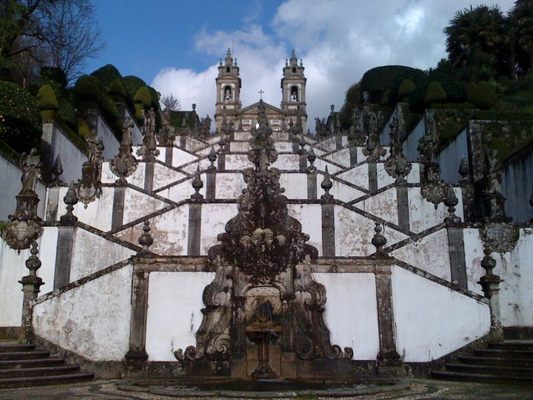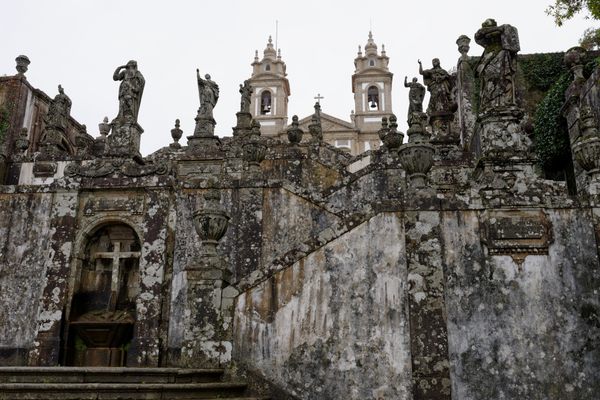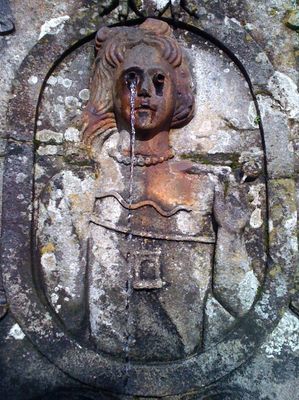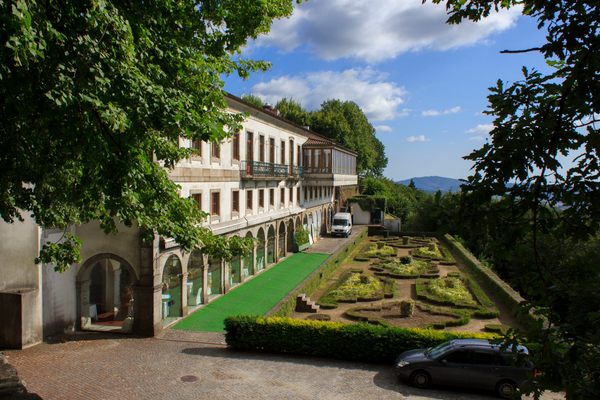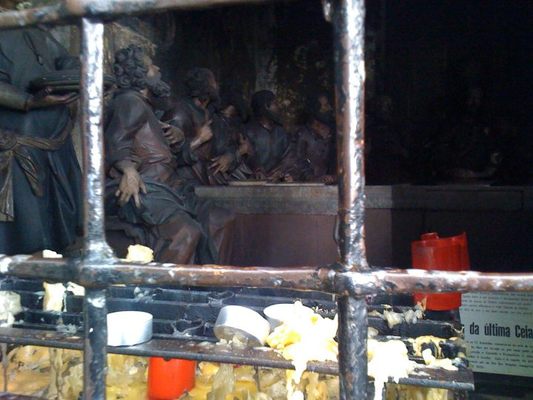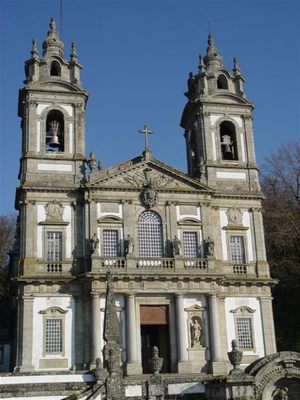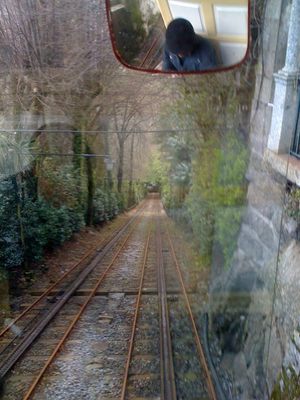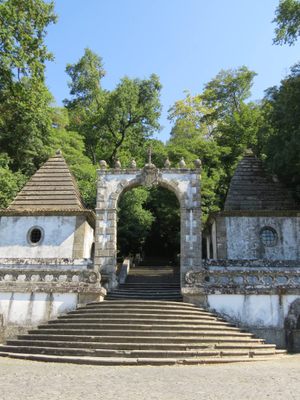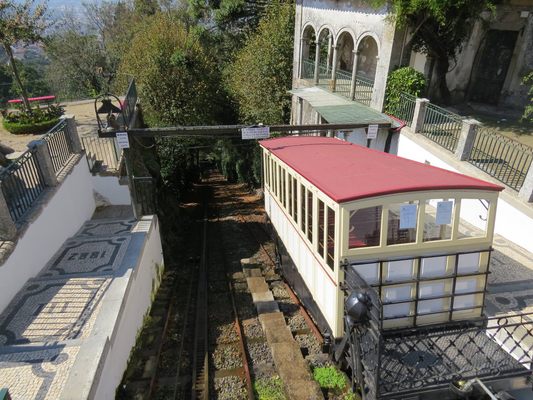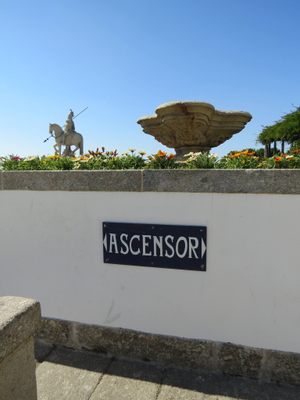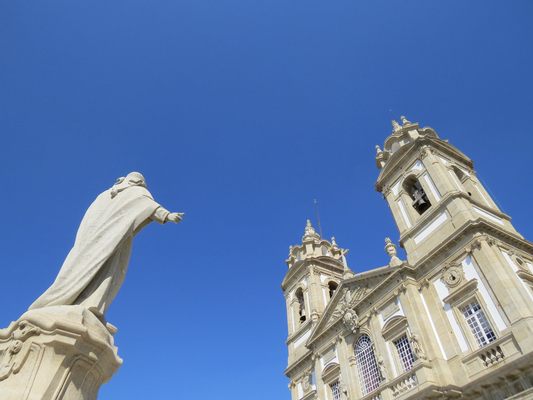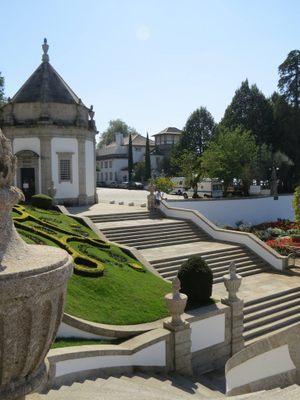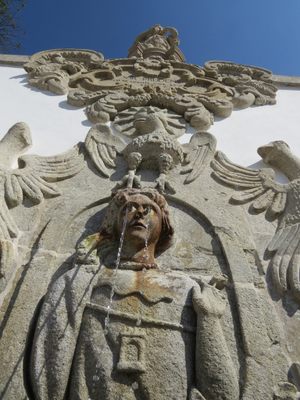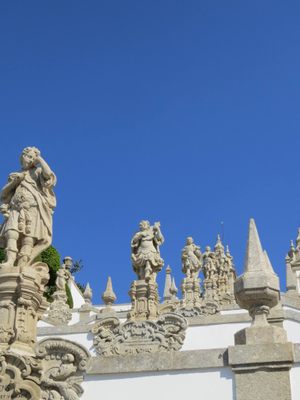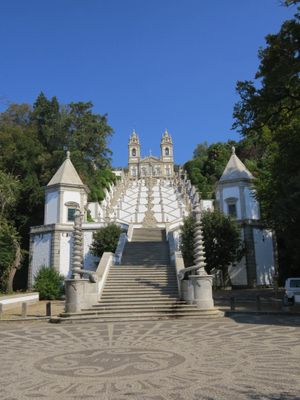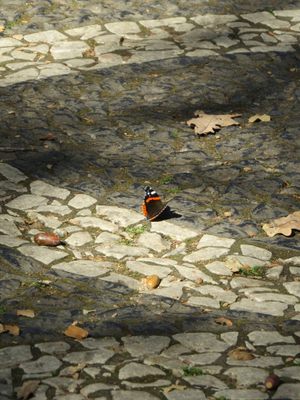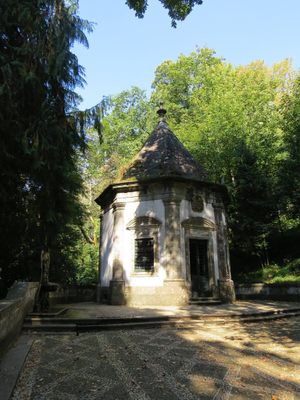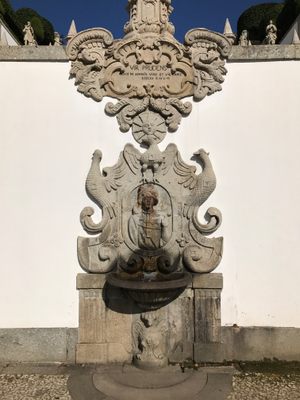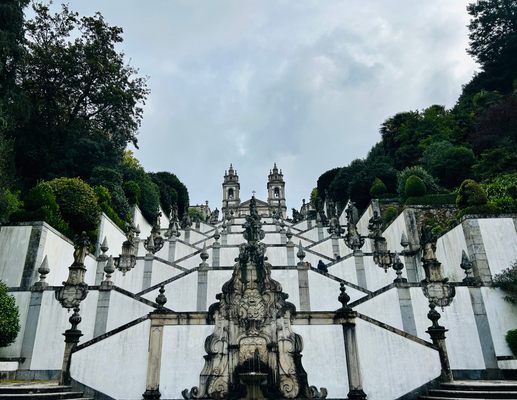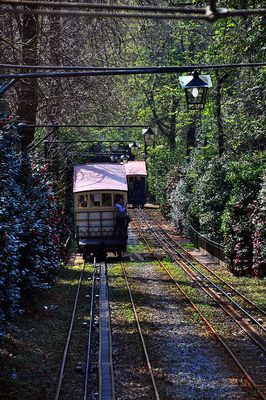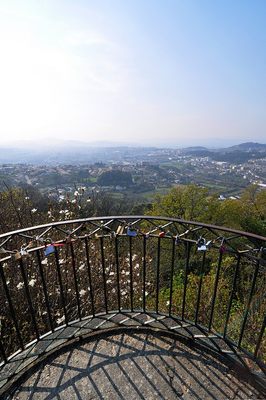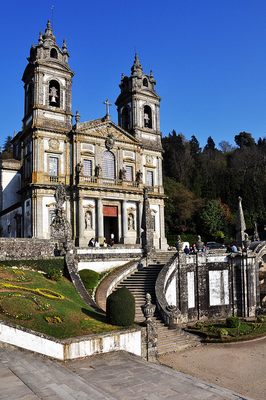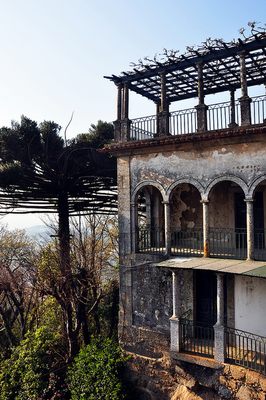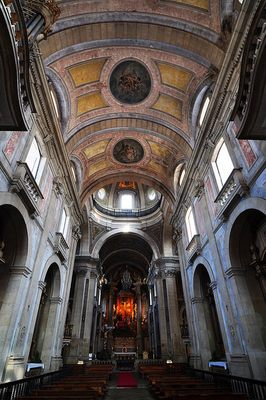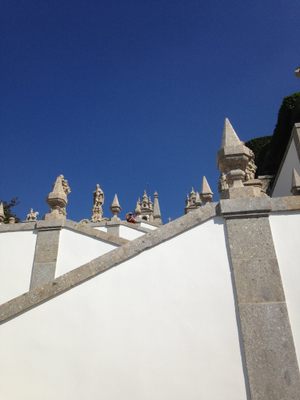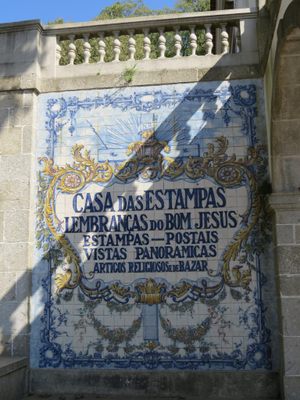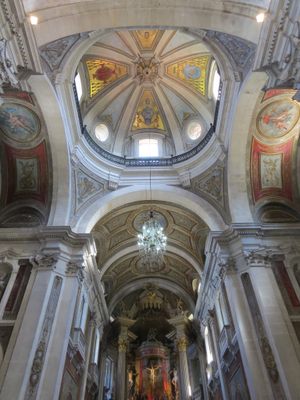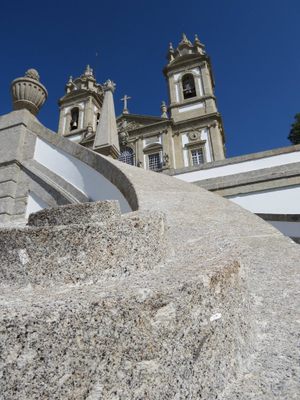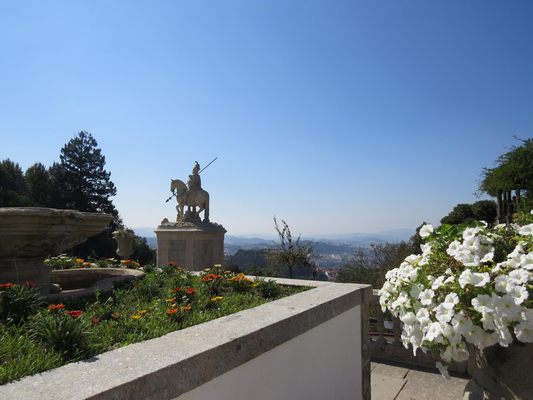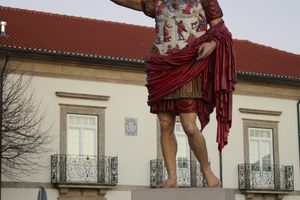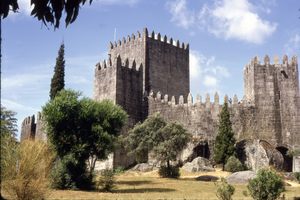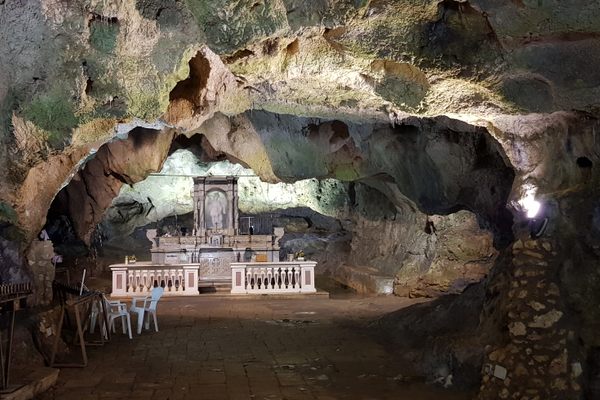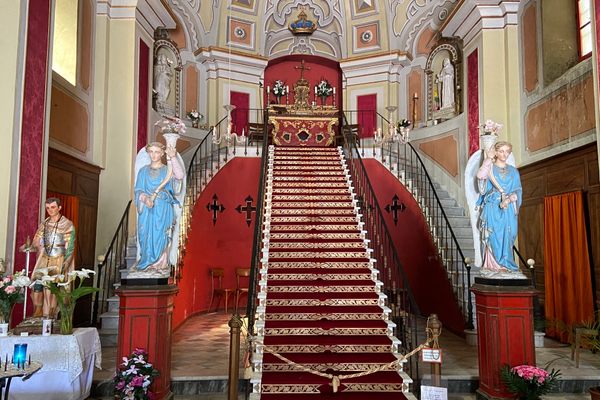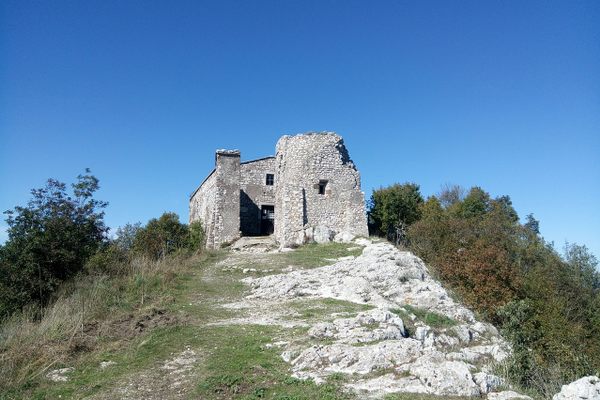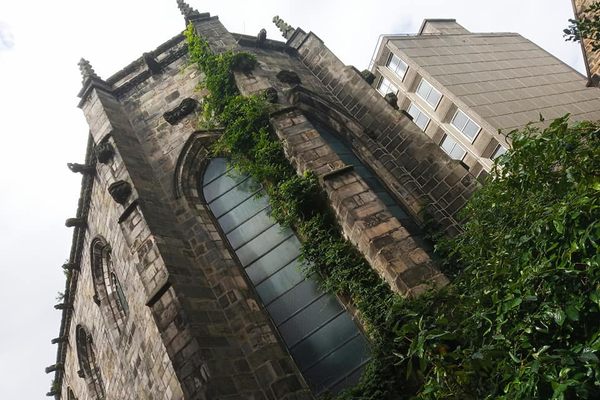About
The religious site at Bom Jesus do Monte's roots date all the way back to the 14th century, when the tradition of making pilgrimage (especially to anywhere on high) blossomed as a way for devotees to demonstrate their faith, often in extremely physical manners.
Built in a complex assemblage of architectural styles, it follows that nearly a century passed before the majority of Bom Jesus was completed. Each feature of the site contains its own symbology, independent of the others, making the entire site packed with visually arresting, bizarre details. The staircases themselves are Baroque in style, with granite steps and a white façade. Take for instance, the perpetually-flowing fountains found on the staircases' landings. It would be easy to miss that each is dedicated to one of the five senses (touch, smell, taste, sight, sound), the effect of which can be incredibly disconcerting on an individual level when removed from the collective whole.
Or, to cite another example, each zig-zagging staircase pivot becomes an octagonal oratory, inside of which is a life-size diorama from the day leading up to the crucifixion of Christ. To Catholics, this is simply known as the "Stations of the Cross" but to the uninitiated, the gruesome realism in which these scenes are rendered lends the aesthetic beauty of Bom Jesus a wholly unnerving and startling quality.
After climbing all 577 steps – on foot or knee, the latter of which continues to be preferred by traditionalists – the Stations of the Cross culminate inside the sanctuary church perched atop the mountain. Designed by local architect André Soares and built by Carlos Amarante, the church was meant as an impressive replacement for a series of modest chapels shown by records to have occupied the mountain from the 14th century onward. Inside, Jesus has arrived at his destiny upon the cross, flanked by Mary, and Pontius Pilate's soldiers. Looking up to the rafters offers a less bleak view, including an elegantly painted central dome surrounded by leaded glass. Meanwhile the Sanctuary's surrounding grounds afford visitors the opportunity to roam manicured gardens while absorbing breathtaking views of the nearby city of Braga.
Everything about climbing Bom Jesus feels like an adventure mixed with a gothic rune hunt, but the option to descend by way of funicular may be the most purely delightful element of the visit. The car itself was built in 1882 and continues to this day to be powered entirely by water, making it completely energy neutral. For a mere €1, the funicular transports passengers up and/or down the nearly 1,000 foot slope in just three minutes.
At the time of one reporter's visit, the mature, jovial funicular operator was tasked with both operating the tram and photographing tourists atop a stuffed horse outside the Sanctuary, using a hooded camera and wooden tripod system that appeared to be as old as the funicular itself.
Related Tags
Know Before You Go
Located 3 miles southeast of the city of Braga. Save your energy for the walk down by taking the escalator tram up.
Entry is free.
Portugal: A Culinary Adventure from Porto to Lisbon
Explore Portugal through food, from the cities to the seaside.
Book NowPublished
November 5, 2015
